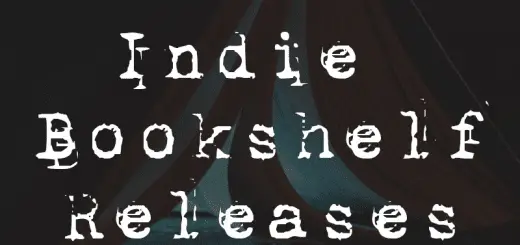Perfectionism: the monster in the closet
Perfectionism: the monster in the closet
By Sarah Elliott
Or, as described by Anne Lamott (1994), “Perfectionism is the voice of the oppressor, the enemy of the people.”
Perfectionism can also be the cause of writer’s block – too scared to start. Petrified to commit to that first word, lest it be less than, not enough or worth nothing at all. Perfectionism truly is a monster, and we are not always cognisant of its influence from the shadowy, damp closets in the recesses of our creative minds. It sends out poisonous waves of discontent, despondency and despair rendering us utterly useless at times. Its bulging luminous eyes sear the creativity from our hearts, and craven claws of chaos shred our courage. Bleak (to say the least).
But could Perfectionism become a protagonist? Reimagined as an anti-hero? Or does this shapeshifting entity always elude capture? Like much in life, it depends upon perspective. Oxford languages describe perfectionism as,
“refusal to accept any standard short of perfection.”
High stakes, and with creative subjectivity this seems like an impossible task. If we explore perfectionism from a psychological perspective, we will find different types of perfectionists including:
- Socially prescribed perfectionists
- Other-oriented perfectionists
- Self-oriented perfectionists
(See the resources section below if you want to delve deeper into the psychology or click here.)
I’m not a psychologist, I’m a writer so let’s look at it from a different slant. If we’re thinking about perfectionism, we might consider the realm of superheroes (adored even with flaws) and one superhero in particular – Superman.
Superman, we’re led to believe is one of the most powerful beings on the planet. He gets his power from our sun, but he can also be weakened. Let’s examine both the source and depletion of his power as though it were perfectionism.
Perfectionism as the sun
When perfectionism presents as the sun it can be said to be positive. A way to fire us up and continually drive us forward. Here we may be considered process-oriented – all about the journey and our creative voice, whilst far less attached to the outcome. Sounds quite healthy, doesn’t it? However, you can have too much of a ‘good’ thing. After all, does Superman spend all day sunning himself on our solar star (even though he has no risk of sunburn)? No. He goes there when he needs a boost of power. When he needs to get things done. When he’s up against it. You won’t find Kal-El hanging out there endlessly sipping cocktails. So, maybe a little perfectionism can be ok?
Perfectionism as red kryptonite
This type of kryptonite will not take Superman out. He can survive this, but it does change him. For us writers, it might look like becoming obsessed with goals and outcomes. We get laser focussed and nothing or no one stands in our way. We subscribe to this mindset because we think it keeps us safe and in control. It drives us to do things that may not be in our best interests and could potentially hurt ourselves or others. We can become unrecognisable.
Perfectionism as green kryptonite
Game over. We have no power here. The relentless drive has weakened us. We will be destroyed unless the beastly burden of perfectionism is removed. I hope you have Miss Teschmacher in your arsenal.
Different strokes for different folks
Perfectionism is personal. Does it provide us with that pep to take risks? Or is it a villain out to derail us and sabotage our efforts? Does it work as a virus infecting our thoughts and self-esteem? Maybe it’s not even a monster.
“I think perfectionism is just fear in fancy shoes and a mink coat, pretending to be elegant when actually it’s just terrified. Because underneath that shiny veneer, perfectionism is nothing more than a deep existential angst that says, again and again, ‘I am not good enough and I will never be good enough.”
- Elizabeth Gilbert
It goes deeper then, further back than Professor Kirke’s wardrobe and maybe even before the dawn of time itself. Time to plunge into the sea of self-esteem, self-worth and all those troublesome beliefs. (Pass me my journal please.)
Can we take the reins of perfectionism?
With resilience, confidence and practice we certainly can. When dealing with situations, making decisions or carrying out actions, consider this:
- Reframing – seeing a situation from a different perspective e.g. my punctuation and spelling aren’t perfect, but my word choices are sublime and my beta readers are right behind my main characters. (After all, so much can be tweaked in edits, right?)
- See it for what it really is. Remember the hood/mask reveals at the end of Scooby-Doo? The scary monster becomes not so scary. After all, perfectionism doesn’t have us strapped to our seats with our hands tied behind our backs, does it?
- We can be aware of perfectionism and accept its presence. We can also choose to detach from the outcome it may be sending us towards. Be like Skynet and become self-aware. Trust that we’ve got this.
“Perfectionism is not striving to be our best or working towards excellence. Healthy striving is internally driven. Perfectionism is externally driven by a simple but potentially all-consuming question: What will people think?”
- Brené Brown
It’s all about what you think and only you have power over that. So, raise that sword and get ready to slay!
References:
Brown, Brené (2021) Atlas of the Heart: Mapping meaningful connection and the language of human experience
Gilbert, Elizabeth (2015) Big Magic: Creative living beyond fear
Lamott, Anne (1994) Bird by Bird: Instructions on writing and life
Resources:
https://www.thegrowthfaculty.com/blog/4destructivetraitsofperfectionismfromDrBrenBrown
https://www.psychologytoday.com/gb/blog/trust-yourself/202109/3-types-perfectionism-watch-out
https://thecreativelife.net/goodbye-to-perfectionism/













